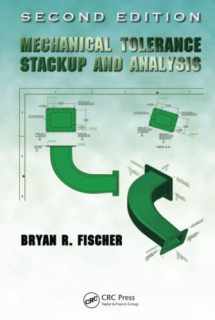
Mechanical Tolerance Stackup and Analysis (Mechanical Engineering)
Book details
Summary
Description
Use Tolerance Analysis Techniques to Avoid Design, Quality, and Manufacturing Problems Before They Happen
Often overlooked and misunderstood, tolerance analysis is a critical part of improving products and their design processes. Because all manufactured products are subject to variation, it is crucial that designers predict and understand how these changes can affect form, fit, and function of parts and assemblies―and then communicate their findings effectively.
Written by one of the developers of ASME Y14.5 and other geometric dimension and tolerancing (GD&T) standards, Mechanical Tolerance Stackup and Analysis, Second Edition offers an overview of techniques used to assess and convey the cumulative effects of variation on the geometric relationship between part and assembly features. The book focuses on some key components: it explains often misunderstood sources of variation and how they contribute to this deviation in assembled products, as well as how to model that variation in a useful manner.
New to the Second Edition:
- Explores ISO and ASME GD&T standards―including their similarities and differences
- Covers new concepts and content found in ASME Y14.5-2009 standard
- Introduces six-sigma quality and tolerance analysis concepts
- Revamps figures throughout
The book includes step-by-step procedures for solving tolerance analysis problems on products defined with traditional plus/minus tolerancing and GD&T. This helps readers understand potential variations, set up the problem, achieve the desired solution, and clearly communicate the results.
With added application examples and features, this comprehensive volume will help design engineers enhance product development and safety, ensuring that parts and assemblies carry out their intended functions. It will also help manufacturing, inspection, assembly, and service personnel troubleshoot designs, verify that in-process steps meet objectives, and find ways to improve performance and reduce costs.


We would LOVE it if you could help us and other readers by reviewing the book
Book review



